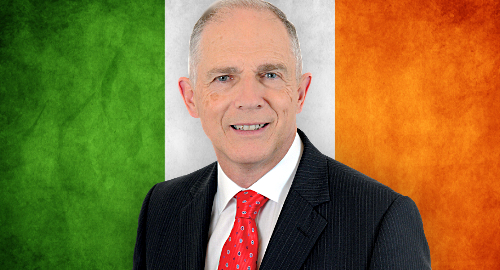A small pool of family members from Dublin, Ireland, collected a “life-changing” €38.9 million (US$46.5 million) EuroMillions lottery jackpot prize on Monday morning, following their huge win earlier this month.Winner Stories, Jackpots, Euro Millions, Ireland, Multi-Country Game
Monthly Archives: January 2018
Precautions in Place After Case of EHV-1 at Belmont
New York Racing Association officials and the New York State Gaming Commission received confirmation that one horse has tested positive for Equine Herpesvirus-1 in Barn 44 at Belmont Park, NYRA reported Jan. 10.
Ashview Succeeds With Young, Correct Mares
While the Ashview Farm of Bryan and Gray Lyster will not be among the leading consignors at the Keeneland January horses of all ages sale by gross because they lack the numbers of other vendors, they will rank among the leaders in clearance rate.
Iliad Sold, Will Enter Stud in Alberta
Grade 2 winner Iliad has been sold and will enter stud this year as the property of an Alberta partnership. The 4-year-old son of Ghostzapper—Little Swoon, by You and I, will stand at Battle River Stud near Camrose for CAN$3,500.
Stellar Wind Again Named Top Mid-Atlantic Horse
For the second time in three years, Stellar Wind has been chosen as the top horse bred in the mid-Atlantic region in the final Mid-Atlantic Thoroughbred/The Racing Biz Top Midlantic-bred Poll.

BC casinos implement new anti-money laundering rules
British Columbia’s beleaguered gambling regulator has implemented new anti-money laundering (AML) rules to cut down on dodgy high-roller habits at its land-based casinos.
On Wednesday, the British Columbia Lottery Corporation (BCLC) announced new measures to stem the seemingly endless parade of Asian VIP gamblers walking into provincial casinos with duffel bags full of $20 bills. The regulator is likely also hoping to stem the tsunami of bad press generated by BCLC’s apparent disinterest in performing its regulatory functions.
As of Wednesday, BC casinos will require a source of funds receipt from any gambler looking to buy-in for C$10k (US$8k) or more in one or more transactions within a 24-hour period. The receipt must be dated the same day as the buy-in, and include full account details. BCLC’s AML unit will review these receipts on a daily basis.
BCLC farms out day-to-day management of its gambling operations to Service Providers, who will be required to certify each of these receipts. Failure to provide a receipt or providing “clearly suspicious” information will require Service Providers to reject the buy-in, document the refusal and report the matter to BCLC, which will launch an investigation.

Swedish Poker Awards: Simon Mattsson Repeats as Player of the Year
Each year, readers of Poker.se vote in five categories for those they’d like to see win a Swedish Poker Award. For 2017, there were only four recipients, and that’s because […]
The post Swedish Poker Awards: Simon Mattsson Repeats as Player of the Year appeared first on .
Rubinstein Named President of Del Mar Thoroughbred Club
The Del Mar Thoroughbred Club announced Jan. 10 that Josh Rubinstein has been named its President.
Principe Guilherme Puts Talent to the Test in Lecomte
On Jan. 13, Principe Guilherme will provide his connections an indicator on how much they can keep dreaming when he headlines a full field of 14 sophomores set to start in the $200,000 Lecomte Stakes (G3).
Bullfighter Galdos Pursues His Equine Passion
Standing in the back walking ring at the Keeneland sale pavilion, Joaquin Galdos and his father, Alfredo, were shopping for bloodstock to add to their operation in Peru. While Alfredo is a horseman, his son is a bullfighter in Spain.

Ireland government seeks independent gambling regulator
Ireland’s gambling industry will be overseen by an independent regulatory body, assuming a new government proposal can meet with legislative approval.
On Wednesday, The Journal reported that Minister of State for Equality, Immigration and Integration David Stanton (pictured) had requested approval from Cabinet for yet another revision to the country’s proposed but never approved Gambling Control Bill.
That 2013 bill proposed setting up a national gambling control office within the Department of Justice, but Stanton is proposing an independent statutory authority be established to oversee all gambling and betting activity in the Republic.
The new regulator would be responsible for overseeing gambling advertising, sports sponsorship, conducting research into gambling activity and controlling a fund to provide treatment for problem gamblers.
Firenze Fire to Make 2018 Debut in Rescheduled Jerome
Mr. Amore Stable’s Firenze Fire waited an additional two weeks but will have a chance to commence his 3-year-old campaign as part of a field of eight in the $150,000 Jerome Stakes Jan. 13 at Aqueduct Racetrack.

Paddy Power Betfair’s new CEO shuffles senior management
UK-listed gambling operator Paddy Power Betfair (PPB) has appointed new CEOs for Europe and Australia, just days after the company’s new group CEO took control.
On Wednesday, PPB announced that it had named Dan Taylor as CEO of its European operations (a newly created role), responsible for both Paddy Power and Betfair brands across all channels and geographies outside the United States. Taylor previously served as managing director of PPB’s UK & Ireland operations, and before that managed Paddy Power’s retail operations.
Barni Evans has been named new CEO of Sportsbet, PPB’s Australian online betting division. Evans transitions from his previous role as Sportsbet’s chief commercial officer and replaces Cormac Barry, who is leaving for a position outside of the gambling industry. Barry has agreed to stay on for the next few months to ensure an orderly transition of power.
Both Taylor and Evans will report to PPB group CEO Peter Jackson (pictured), who officially assumed the comfy corner office on Monday from outgoing CEO Breon Corcoran. Jackson will direct PPB’s operations from Paddy Power’s Dublin HQ.
Upcoming Belmont Park Meet to Feature 62 Stakes Races
The New York Racing Association today released its stakes schedule for the 2018 spring/summer meet at Belmont Park, featuring 62 stakes races worth $19.3 million throughout the course of the 54-day meet.
Turfway Park Announces Weather-Related Schedule Changes
To recover races lost to cold-weather cancellations and work around temperatures expected to plummet this weekend, Turfway Park is making changes to its live racing schedule for Jan. 13, as well as to the meet’s Friday cards.

Partypoker Signs Finnish Young Gun Joni Jouhkimainen
While PokerStars seems to be bleeding sponsored pros (Jason Mercier was the latest to part ways), Partypoker seems to be engaged in an arms race with both 888poker and Winamax […]
The post Partypoker Signs Finnish Young Gun Joni Jouhkimainen appeared first on .
Thunder Snow to Make 4-Year-Old Debut Thursday in Dubai
Two-time group 1 winner Thunder Snow is scheduled to make his 4-year-old debut Jan. 11 in the Al Maktoum Challenge Round 1 presented by Longines (G2) at Meydan Racecourse.

South Korea probes Coinone crypto exchange’s margin trades
South Korean authorities are investigating the country’s third-largest cryptocurrency exchange for allegedly providing a “gambling service.”
On Wednesday, the Korea JoongAng Daily reported that the Gyeonggi Nambu Provincial Police Agency had launched a probe into the Coinone exchange’s margin trading scheme, in which customers could effectively wager on whether the price of a cryptocurrency would rise or fall.
The police claim that margin trading is gambling by another name due to customers risking money on an outcome determined by chance. Coinone disputes this interpretation, noting that short-selling is common on Korea’s traditional stock exchange platforms, but the police insist that crypto exchanges don’t rise to the same standards.
South Korea keeps an extremely tight lid on its citizens’ ability to gamble. Local residents are allowed to gamble at exactly one of the country’s land-based casinos, and the only other legal options include the lottery, plus limited forms of sports and race wagering.
T.I.P. Increases Shows, Announces Youth Ambassadors
The Jockey Club Thoroughbred Incentive Program (T.I.P.) Jan. 10 announced that it will offer awards and classes at more than 1,200 shows in 42 states and six Canadian provinces in 2018.
Belmont Stakes Festival Tickets on Sale Jan. 25
Tickets for the 2018 Belmont Stakes Racing Festival will go on sale to the public on Thursday, January 25 starting at 10 a.m. via Ticketmaster.com.